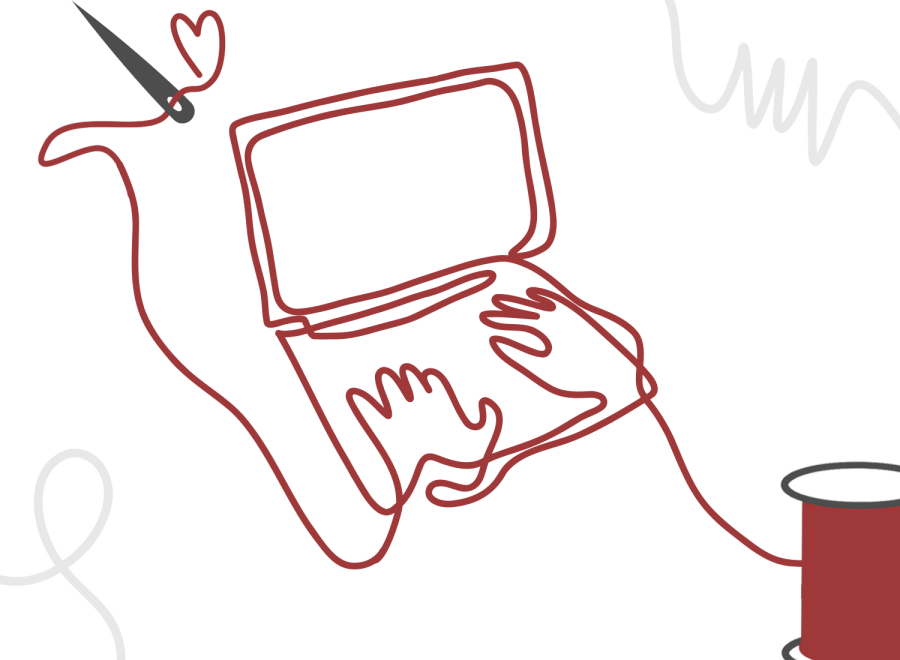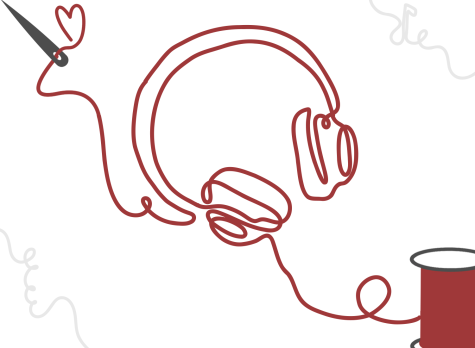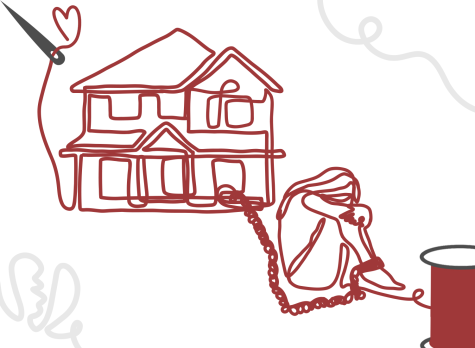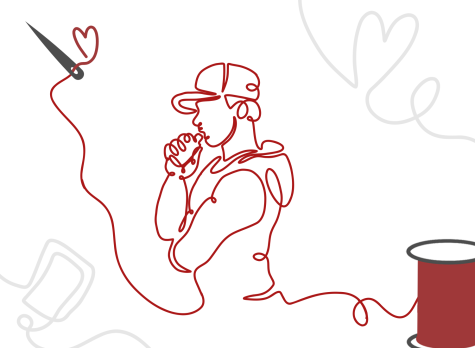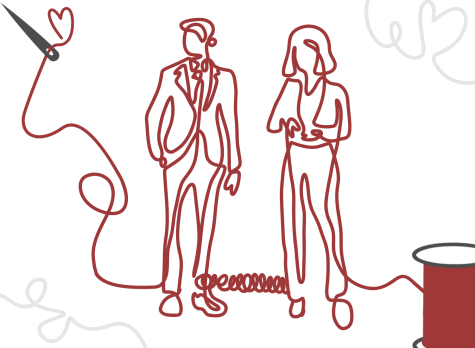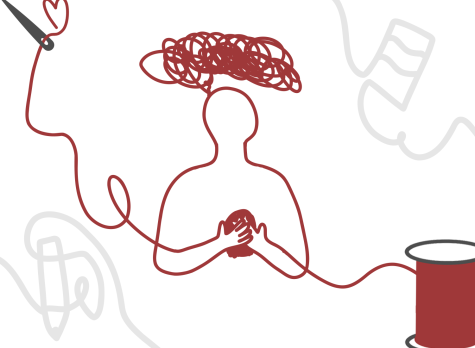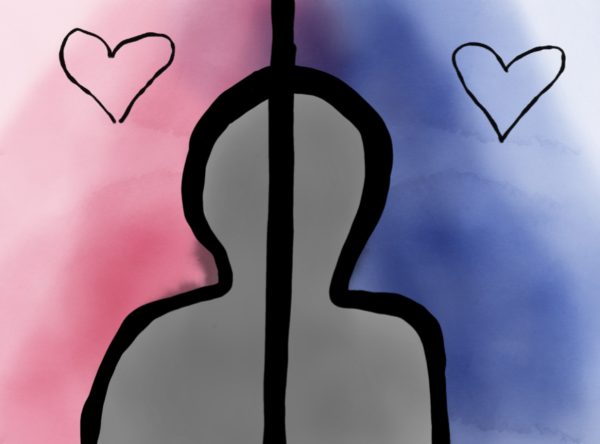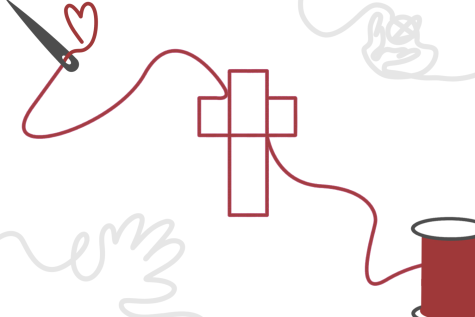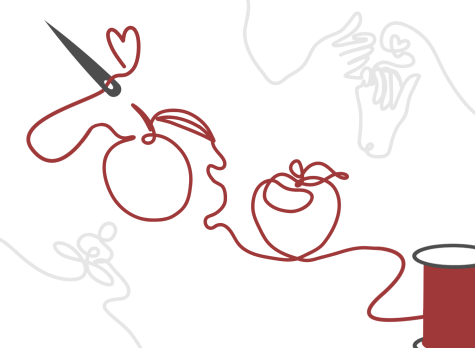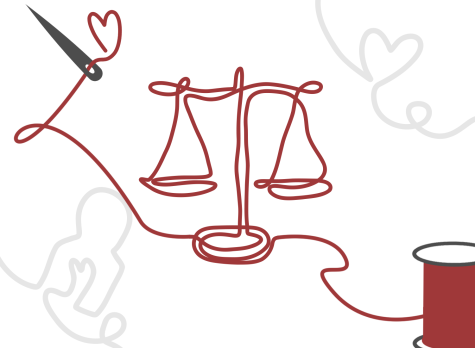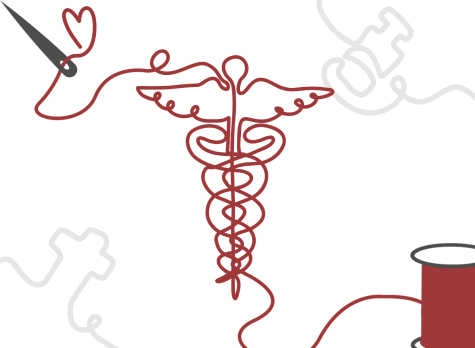Mental health: struggling with mental illness in a household where it is familiar but unaccepted
Welcome to The Mav’s mental health editorial series: The Patchwork Project
All opinions are those of the writers themselves and do not promote any official view or stance of Mead High School or St. Vrain Valley Schools.
This article contains sensitive discussion surrounding suicidal thoughts and substance abuse. Reader discretion is advised. If you or someone you know is experiencing safety or mental health concerns, please refer to the professional medical resources found at the bottom of this page.
I was happy as a kid. I excelled in school, made friends easily, and adapted to different situations with ease. My father, who is very in touch with his emotions, always made sure I was mentally happy and healthy. I had an okay relationship with my mother. I didn’t live with her due to her addictions, but I assumed that was normal with every family, and I never saw it as an issue. I’d see her on the weekends or when she was in legal trouble (which I was unaware of at the time), we’d have supervised visits.
My step mother — who to me is more of a mom than my biological mother ever could be — is very different from me. My dad and I are both extroverted and social, and she’s always been more quiet, serious, and reserved. This caused issues, but I’ll always love her.
Middle school hit, and as for many others, it was a train wreck. I suddenly became more aware of who I was and how others perceived me. I became a people pleaser — who wants people to dislike you?
I discovered later that my mother struggled with substance abuse, and my father chose to raise me away from that. I was angry with my dad for taking me away from my mom, and I was angry with my mom for choosing drugs over her daughter. I felt abandoned, lonely, and unworthy. If my mom didn’t want me, who would?
As a kid, doctors believed I was struggling with bipolar depression. You can’t diagnose a child, but they were near certain. I went to Boulder every six months to help with children’s mental health research. I’d have to fill out questionnaires that were pages long, and they asked questions like “have you had suicidal thoughts in the past two weeks?” or “have you wanted to harm yourself or others in the past month?” I was confused why they were even asking because these feelings were so familiar to me. I thought everyone fantasized about how they would die.
Schoolwork has always been a priority in my house; you do well in school, that isn’t an option. It felt like schoolwork was more important to my parents than my wellbeing. My dad would yell that I’m not doing well enough academically, and when he asked why, I’d explain I wanted to die — school was the last of my worries. To him, that was just an excuse to do poorly without consequences. He tried to help, but when nothing changed he assumed I was using depression as an excuse, so the “suck it up and just be happy” conversations began.
As crazy as it sounds, “just being happy” doesn’t really work like that.
I was still visiting my mom, and we were doing well. I’d see her on the weekends. As I progressed through middle school I began to recognize my mother was ill. She suffered from bipolar disorder, depression, and anxiety.
I remember the night I saw firsthand what addiction and untreated mental issues do to a person. We were driving home when my mom — clearly intoxicated — nearly killed me in a car wreck. Selfishly, my mom was more worried about not getting caught, rather than my physical wellbeing. And as sad as it may sound, I saw a lot of myself in her. My mother and I both suffer from bipolar depression. Crazy events like this seem to blow over for us, and while we seem crazy to others, we can’t control it. Impulse, extreme mood swings, and stubbornness control us, and it can be hard to think of others or their thoughts and feelings.
My dad always told me she was sick, and you can’t expect better from her. But I did. And I still do. Suffering with the same extreme mental disorder has helped me realize that you and your emotions are valid, but not an excuse to be a bad person. And mental health problems are seemingly more common than not. However, there’s help.
Therapy has never helped me, the thought of some random adult trying to understand and rationalize my mind freaks me out. But I found different help. For me, online platforms like Instagram and Discord have helped introduce me to amazing people struggling the same way I do. My main group of friends come from multiple religions, ethnicities and races, sexualities, and views and opinions. And we’re all going through similar thing. The world is full of good people with good intentions, and I’ve found my people through these platforms. Getting friends going through difficult situations I can relate to is very beneficial. We’re able to hold each other accountable without setting too high of standards for each other. Mental illness doesn’t just go away, it’s a journey. Have good people to take the journey with you.
If you or someone you know is seriously struggling negatively with mental health or mental illness, has been practicing unhealthy coping mechanisms, or is experiencing any form of substance abuse, please reach out for help.
In case of an emergency in personal health and safety, call 911.
The Weld County crisis walk-in service, North Range Behavioral Health, can be found on 928 12th St., Greeley, CO 80631. For Boulder County, Boulder Crisis Services can be reached at (844) 493-8255.
The local crisis phone number, available 24/7, is the following: (970) 347-2120
If not in a crisis, the North Range Warm Line is available from 10 a.m. to 10 p.m. every day and offers professional mental health services for free. They can be found at (970) 347-2359. This service is also available in Spanish.
Colorado Crisis Services can be found at (844) 493-8255. You can also text “TALK” to 38255.
The National Suicide Prevention Lifeline can be found at (800) 273-8255 for those in serious and immediate threats to safety.
Other mental health resources include the North Colorado Medical Center/Banner Health — you can call (970) 810-4121 or visit 1801 16th St., Greeley, CO 80631 — as well as the UCHealth Greeley Hospital. The hospital can be reached at (970) 652-2000. Their address is 6767 W. 29th St., Greeley, CO 80634.
The Substance Abuse and Mental Health Services (SAMHSA) national hotline can be reached at 1-800-662-4357.
Your donation will support the student journalists of Mead High School. Your contribution will allow us to purchase equipment and cover our annual website hosting costs.

